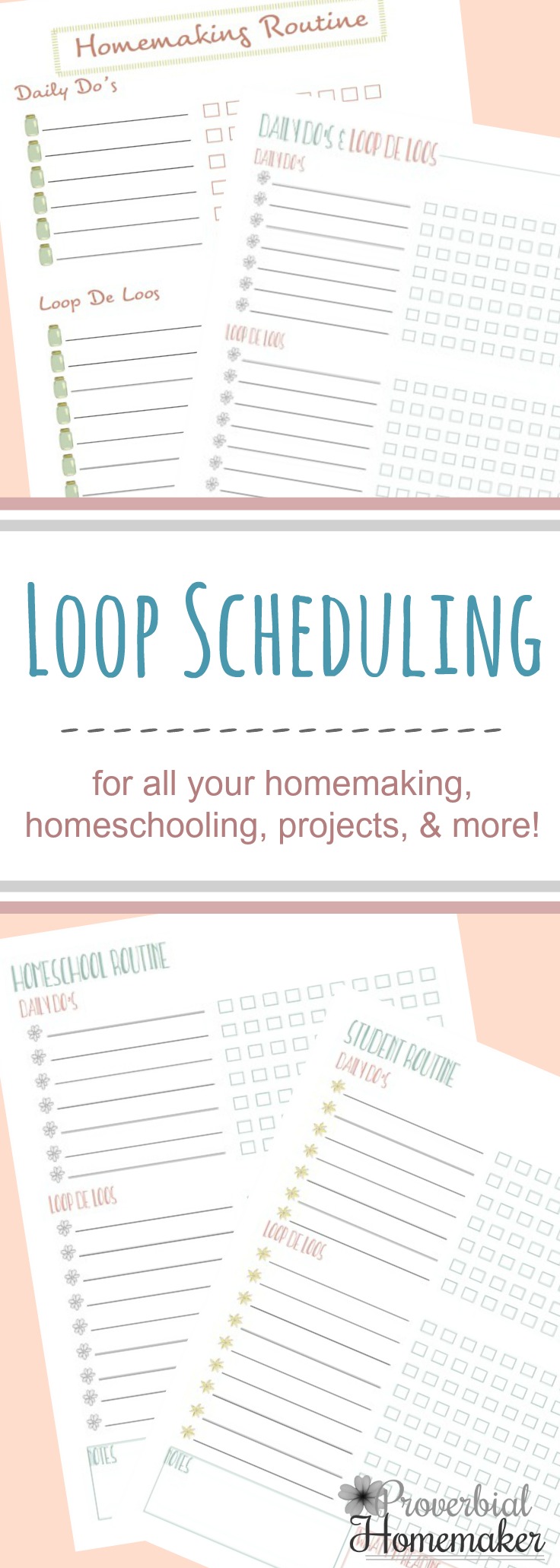Life has a tendency to get in the way of any perfectly laid plans you make. Certainly, this is true of homeschooling. With little ones underfoot, play dates, field trips, errands to run, and chores to do, life gets crazy fast. Sometimes… something has to give. It is so easy to put aside lessons for a day here or two days there until one day you realize you’ve had more days off than you’ve had days on. Homeschooling consistently is important for sure, but that doesn’t make it easy in the midst of life.
Life can be hard and unpredictable. We’ve all been there.
Disclosure: *This post may include affiliate links. As an affiliate, I earn from qualifying purchases. Read the disclosures and terms for more information.
10 Tips for Homeschooling Consistently
Homeschool moms want to be faithful in teaching and training their kids. We want to succeed with homeschooling. When we aren’t consistent with regular homeschool days, it can feel like we’re failing.
Just know that this is extremely common, especially in the early homeschool years, and it doesn’t mean that you aren’t cut out for homeschooling. It just means that, like with everything, there’s room to grow and improve. With homeschooling, you have time to do that!
In that spirit, here are 10 tips that will help you start homeschooling consistently.
1) Being inconsistent isn’t always bad.
Yes, there are good things about homeschooling consistently that make it a worthwhile endeavor:
- It helps children to build on what they’re learning when there aren’t long stretches between lessons.
- Being consistent and diligent is, in itself, a good life skill to teach your kids.
- It will bring a valuable sense of order to your home routines.
- In the long term, it is important in order to educate your children well and prepare them for high school and beyond.
- Of course, it’s also essential if you have state laws dictating hours or days you must homeschool.
But… being inconsistent isn’t always a terrible thing. Here are a few reasons why:
- Homeschooling consistently doesn’t necessarily mean sitting at the table with worksheets for hours. There are many methods and ways to make home education a part of life, too!
- Remember that homeschooling = flexibility. Part of the beauty of homeschooling means working around big family changes and busy seasons.
- It takes time to find your groove. Most homeschoolers need a few years to find their groove in terms of methods, daily routines, preferences, etc. And even then it will change from time to time. The early years are actually a great time for that.
2) Start the day with the most important things.
Decide what your priorities are in your homeschool and take care of those FIRST thing. Many times that’s the subjects you deem most essential. In our home, Bible, reading, and math always happen. Those are our priorities, and so even on “light” homeschool days, we tackle those first.
Your priorities might look different and that’s okay. Here’s the point: start with the most essential subjects so that no matter what life throws your way mid-day, the most important part of your school gets done.
Of course, from year to year your priorities might change. When you’re deciding on goals for your homeschool, you might decide to focus on writing progress for one child and getting another child reading fluently. Mark those the things that you work on right after Bible time in the morning so they’re more likely to get done!
The Rhythms & Routines Homeschool Planning System includes a printable planner and a course that walks you step by step through how to use routines for homeschool planning and set up a system that works with YOUR family and personality, with fillable pages and various templates to choose from.
3) Have a plan with milestones to aim for.
Work on setting milestone goals for the homeschool year. When you’re doing homeschool planning, decide what books/curriculum you are hoping to finish by the end of the year and then work backwards on the calendar to figure out about where you should be at each quarter. For example, “complete math 6 lesson 32 by Nov. 30.” Then set reminders on your phone or in your planner to check on your progress before the end of each quarter.
This is helpful for two reasons:
- Having milestones will do more to motivate YOU to be more consistent.
- When you see you’re not on track, you can make adjustments in your daily priorities so you can better meet your milestones, or adjust your milestones.
The purpose here isn’t to be rigid or be a slave to your plan. (So, no need to get crazy and triple your daily math lessons to meet some deadline.) Instead, the idea is to have a general plan, be flexible, and work steadily toward your homeschool goals.
4) Set and communicate clear expectations.
Make sure your children know what you expect them to accomplish each day and the quality of work required. Homeschooling consistently also means being consistent in our expectations. Here’s how we do it:
- We set up rhythms and routines to our day and the kids know when lessons happen, when we do chores, etc.
- For older kids who can work independently, I make sure the kids know what is on their daily and looping list of tasks each day, and they are responsible for working through them diligently.
- If someone has been trying to avoid their work, they get extra supervision (doing all their work at the table, checking in after each subject, etc.)
- Our goal is to finish all work by a certain time of day. For those who have finished there is a reward (free time, a short video, etc.)
5) Teach diligence – Do the next thing!
When Dory the forgetful fish is swimming in the ocean of overwhelm, she has a mantra. Just keep swimming. It’s another way of saying “do the next thing!” These short phrases are incredibly powerful for homeschooling moms as well. In every moment, you can choose to keep going. Move on to the next thing, and the next thing, and then the next thing.
Teach your kids this same approach. Work breaks into your daily routines, obviously, but teaching your kids to do the next thing will keep you all moving forward and help them with the habit of diligence. This isn’t only true for lessons, but for personal habits as well.
Our younger kids use a simple loop schedule and our older ones use the Student Work and Habit Tracker. It helps them build a habit of doing the next thing for their school work as well as habits like cleaning their room, hygiene, practicing piano, personal devotions, and so on.
6) Build good habits and routines by anchoring.
Having good routines is essential for homeschooling consistently. It can be a challenge to accomplish, however. I’ve found that it’s much more successful and sustainable if moms work on building a routine from the ground up instead of trying to fit their family into someone else’s schedule or routine.
How do you build up your own routine? Through anchoring! The idea is that you choose one activity you’d like to do (such as a read aloud time) and choose a “rock” in your day that you can anchor it to. Rocks are things that your family already does most days anyway, and so anchoring a new activity to it means your’e more likely to make it a habit.
For example:
- Anchor chore time right after breakfast and right before bed.
- Anchor read aloud time (Bible, literature, history, etc.) to mealtimes.
- Anchor group work time (such as rotating through Charlotte Mason activities) to after chores.
- Anchor music or art time to a Fun Friday tradition.
Be creative and do what works for your family! As you build habits, they become “rocks” that you can anchor new activities to. Read more here about homeschooling with rhythms and routines.
7) Reward consistency.
There are natural rewards in life when we are consistent with our work and diligent to complete it in a timely manner. It makes sense to encourage our kids (and ourselves) to be consistent by rewarding those efforts!
The first way to reward improvement in homeschooling consistently is to build in natural blessings. As I mentioned before, we do a fun activity or short video in the afternoon at the same time every day for those who have finished their work. The kids are motivated to get things done so they can enjoy the special activity and their free time afterward!
Another reward I have done is to surprise them with something special when I notice we have had a really good week or month in homeschooling consistently.
- Surprise fun family outings or field trips
- Unexpected playdates
- A special treat or “party” meal
- An end-0f-the-week movie and popcorn time
- Getting to stay up an extra hour
- Letting the kids build a fort and sleep in it for a night (bring your patience, moms, lol!)
- Anything else special or unexpected you can think of to delight your kids!
When you do this, make sure you tell your kids you’ve noticed what a great job they’ve been doing and that you wanted to bless them with a special treat.
You might be more of a chart person and a box checker and that’s okay too! If you prefer that approach, make consistency charts for your kids (or use the Student Work and Habit Tracker) and follow up with rewards when the boxes are all checked.
8) Guard your homeschool time.
We are so tempted to say yes to every request, aren’t we? As homeschool moms, we have to be extra diligent to set boundaries. Just because we are home all day doesn’t mean we are available for every daytime volunteer need or every field trip opportunity.
If you want to homeschool consistently, you need to be home often enough to do the job. Of course, I know that many families need to be out and about often for things like medical appointments, and in that case, car-schooling (bringing along lessons and making use of audiobooks) is invaluable.
But otherwise, guard your homeschool time and make sure you’re home long enough to get the important work done and have time to enjoy each other in the process. If your week is imbalanced in the direction of outside activities, learn to say no.
The Student Work & Habit Tracker is a simple tool that helps students from about 3rd-12th grade to manage their time and stay focused. They will craft meaningful goals, manage their weekly and daily work efficiently, and build in important habits. Most importantly, the Tracker will help them keep God’s Word at the center of their daily life, doing all in the name of the Lord.
9) Teach children to work independently.
One fantastic way to make sure you are homeschooling consistently, even through a crisis, is to build up independent learning skills, particularly in kids grades 3 and above.
- Teach them to do as much of the work as they can on their own and then ask when they need help.
- Teach older kids to self-correct their work and come to you with any sticking points for further instruction.
- Give them opportunities to explore their own interests for delight-directed learning:
- Let them pick which read aloud book you’ll do next
- Let them choose between suggested independent reading
- Provide resources or build elective courses into their rotation based on their interests
- Give them ample time in the afternoon to pursue fun activities on their own
- Gradually give them the responsibility to tackle their work and manage their time (although inspecting their work daily or weekly is important)
Again, building in good routines and providing tools like the Student Work & Habit Tracker and loop scheduling have helped this process quite a bit in our home.
10) Build in accountability for homeschooling consistently
Expect your kids to do their work. However, remember that expectations don’t do anything for you unless you have accountability. You can’t say you expect your kids to do a writing assignment unless you are willing to follow up and read the writing assignment and provide feedback.
Here are some ways to help your kids stay accountable:
- Have your kids bring their finished work to you after each subject to go over it together.
- Have a daily “check point” before school is considered done where you go over the day’s work together and talk through any issues and questions.
- Put a laminated loop schedule or checklist on the wall and teach them to check things off as they go. Be sure they show you the checklist before the homeschool day is considered complete and they can enjoy their free time.
- Have a “weekly meeting” (perhaps where Dad joins you) to discuss/review the previous week’s work and set expectations for the coming week, praying for diligence and understanding.
- Share accountability tasks for challenging subjects or those that fall through the cracks. Online courses, having Dad review work, and other solutions can help.
Sometimes, WE are the ones who could use some accountability and improvement in our habits in order to make homeschool happen or to ensure that certain subjects don’t fall by the wayside.
- Use a loop schedule for yourself to make sure those subjects that never seem to get done actually get done! You can work them in one or more times a week or a couple of times a month. But you’ll keep making progress!
- Parter with another family or two and share the load. We used to have another family come over once a week. I would teach art and the other mom would teach piano!
- Sign up for a class together! We’ve done homeschool choir once a week and it was a huge blessing. Now we’re doing a theatre subscription box with weekly sessions by the organizer to help teach acting skills and practice our play. Without that, I’d have a harder time working it into the schedule!
- Consider a support group or co-op for encouragement and accountability.
- Find an accountability partner. Ask a like-minded homeschool mom to join you for three months in praying for each other and checking in via text message once a day to report on how you did with homeschooling consistently.
Homeschooling is hard work. When you homeschool consistently, you give your children a strong foundation for the future, both in the strength of education and strength of character.
Hang in there, mama. You’re doing important work!
You Might Also Like…
The One Thing That Saved Our Homeschool









 by Stephanie, The Multi Taskin' Mom
by Stephanie, The Multi Taskin' Mom
This Post Has 2 Comments
This is amazing!! Wow! Thank you!
This is a fantastic giveaway!